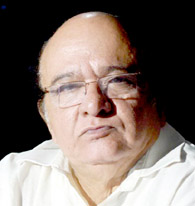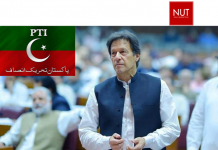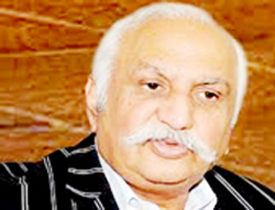The speculation mills are running at an all-time high, with lobbyists busy round the clock to promote their favourites as a very popular, successful and domineering COAS is about to step down.
Last time, the prime minister had chosen the IG of Training and Evaluation, who had not lobbied at all, as the new COAS – against the preferred choice of the outgoing chief, Gen Kayani. What should the PM be weighing this time in making a most pivotal appointment for the sixth time in his career?
To his misfortune, Prime Minister Nawaz Sharif doesn’t have much of a record of making a choice that works in his favour: his choice of Gen Ziauddin Butt had fatally backfired in 1999. Even his last choice, though on merit and rewarding for a country under siege from home-grown terrorists, didn’t work to back his vision for peace and economic connectivity across the troubled region, which we are obsessed with being at war with.
But Gen Raheel Sharif turned out to be a most celebrated military leader who not only forcefully led the war against those who had turned their guns on Islamabad, but who also kept the civilian setup on tenterhooks without, however, taking over the reins of the government. Undoubtedly, he kept the Bonapartists from crossing the red line but preferred a high public profile, overshadowing the de jure executive. In post-martial-rule Pakistan, he consolidated civil-military relations under the hegemony of the GHQ without, however, disrupting the democratic transition – despite repeated promptings by unscrupulous elements.
It is to Gen Raheel’s credit that he took the war on terror to even the most feared hideouts of the terrorists and revived the writ of the state in most of the ‘no-go areas’, such as North Waziristan. This followed a most successful Swat operation.
Of course, the general could not fight against all at the same time and, hence, much more remains to be done. His tenure saw the best advancement in operational spheres without bringing a paradigm shift in our over-stretched and unsustainable security paradigm.
Now it is time to take the achievements of Gen Raheel to their logical conclusion while focusing our attention on evolving a national security paradigm that facilitates conflict resolution with all our neighbours and helps bring an end to all proxy wars, including the combing operation against those who use our territory for terrorism elsewhere.
With US president-elect Trump dangerously reshaping the world and the kind of alarming appointments he is making, such as of Gen Michael Flynn as his national security adviser, Pakistan must hurry to remove the remaining skeletons in our closet and try a peace offensive in the region. That is what is required most and you need a thinking and resilient person who will take a backseat and listen to the advice of diplomats who cannot defend the indefensible chasm between the stated policy and the contrary deeds on the ground.
The question to be answered is: why doesn’t the world listen to us, despite our immense sufferings and sacrifices at the hands of the war on terror?
Indeed the person does matter, and the role of the individual in redefining your destiny is no less crucial. But the army as an institution is much more important than its hierarchical chief. And the country is even far more important than one department of one of the three institutions of the state – the executive to be led by the elected chief executive.
Against the democratic genesis of this country, Pakistan has become a garrison state – a national security state that is inherently in disproportional conflict with its fragile economic and social base. Its security paradigm is exclusively militaristic – at the cost of social and human security.
The perpetual conflict with both our western and eastern neighbours, the enmity with India as a national paradigm for reactive-existence in particular, serves the purpose of reinforcing a national security state. Consequently, Pakistan cannot be expected to become a state that is at peace with itself – in its broadest ramifications – and with its neighbours, in narrow security considerations.
Indeed, both India and Afghanistan have not reconciled with the idea of living with due reverence with a pivotal state and have reinforced a warrior state that cannot reconcile with the irredentism of Kabul and the hegemony of Delhi. The real challenge for Pakistan is to transform a hostile regional environment to suit the progress and human security of its people, along with a viable capacity to deter any intimidation.
Being over-developed institutions of the state, the armed forces are under greater obligation to restrain from continuing to expand their space by squeezing civilian space. It is time for a sustained and organised ‘retreat’ from what is not their domain.
They will need to let the tremendous civilian potential come into fullest play to build a sustainable socio-economic base for Pakistan, which is the only guarantee for its national survival and that of our relatively invincible defence.
While making the two crucial appointments, the prime minister must think of the already marginalised civilian space and the need for a less conflict-oriented regional strategy.
Forget about your ‘own men’; find someone in the best national interests and preserve a shaky democratic transition.
The writer is a senior journalist.
Email: imtiaz.safma@gmail.com






